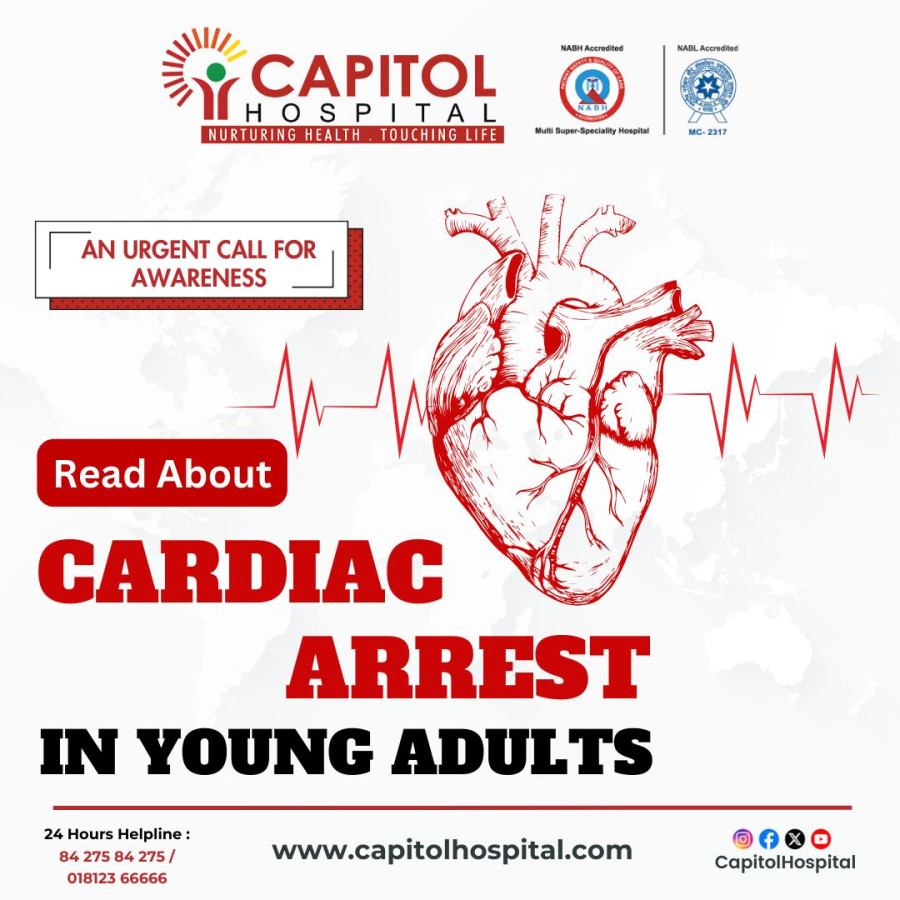
India has witnessed an alarming increase in cases of sudden cardiac arrests among individuals in their 30s and 40s. Once considered a health concern primarily for the elderly, cardiovascular diseases are now affecting people in their prime, leaving families devastated and communities in shock. The tragic and untimely death of Rohan Mirchandani, CEO of Epigamia, couple of months back serves as a stark reminder of the urgency to address this growing epidemic. Raising awareness about this silent killer is crucial. Early screening, lifestyle modifications, and vigilance can help prevent these tragic events and safeguard lives.
Understanding Cardiac Arrest
Cardiac arrest is a sudden and unexpected loss of heart function, breathing, and consciousness. Unlike a heart attack, which occurs due to a blockage in the arteries, cardiac arrest is often caused by electrical disturbances in the heart that disrupt its pumping action. Without immediate medical attention, the outcome is often fatal.
Why Are Younger Adults at Risk?
The increasing incidence of cardiac arrests in young adults can be attributed to several factors:
1. Unhealthy Lifestyles –
Sedentary routines, poor dietary habits, and lack of exercise are common among urban professionals.
2. High Stress Levels –
Work-related stress, coupled with inadequate sleep, significantly increases the risk of heart conditions.
3. Smoking and Alcohol Consumption –
Major risk factors for cardiovascular diseases.
4. Undiagnosed Medical Conditions –
Hypertension, diabetes, and high cholesterol often go undetected in young adults, leading to catastrophic events.
5. Genetic Predisposition –
A family history of heart disease can play a significant role.
6. Post-COVID Complications –
Studies indicate that COVID-19 can have lingering effects on the heart, increasing the risk of arrhythmias and cardiac arrests.
Recent Cases Highlighting the Crisis
The tragic death of Rohan Mirchandani underscores the need for widespread awareness and proactive measures. Other high-profile incidents include:
• South Indian actor Chiranjeevi Sarja, who succumbed to a cardiac arrest in Bengaluru at the age of 35.
• Telugu actor and dramatist Harikanth, who unexpectedly passed away at 33 due to a cardiac arrest on July 1, 2023.
• Bollywood actor Sidharth Shukla, who tragically lost his life at the age of 40 after suffering a heart attack.
• Sushmita Sen, former Miss Universe, who suffered a heart attack at the age of 47.
• Renowned choreographer Remo D'Souza, who experienced a heart attack at 45 despite having no known underlying conditions.
According to a study published in the Indian Heart Journal, the prevalence of sudden cardiac arrests in younger individuals has doubled in the past decade, highlighting the urgent need for a community-wide response.
Recognizing the Warning Signs
While cardiac arrests often occur without warning, certain symptoms can indicate underlying heart problems:
• Chest pain or discomfort
• Unexplained fatigue
• Shortness of breath
• Irregular heartbeat or palpitations
• Dizziness or fainting spells
Recognizing these symptoms early and seeking medical attention can be lifesaving.
Preventive Measures
1. Regular Health Screenings
• Heart Health Check-ups – Annual screenings for blood pressure, cholesterol, and blood sugar levels are crucial.
• Electrocardiograms (ECG) – A simple test to detect electrical abnormalities in the heart.
• Stress Tests – To evaluate how the heart performs under physical exertion.
2. Adopting a Healthy Lifestyle
• Balanced Diet – Incorporate heart-healthy foods such as fruits, vegetables, whole grains, lean proteins, and nuts.
• Regular Exercise – Aim for at least 150 minutes of moderate-intensity aerobic activity per week.
• Quit Smoking and Limit Alcohol – These lifestyle changes can significantly reduce the risk of heart disease.
3. Managing Stress
• Mindfulness Practices – Yoga, meditation, and deep breathing exercises can help lower stress levels.
• Work-Life Balance – Prioritizing personal time and activities that bring joy and relaxation can improve overall heart health.
4. Adequate Sleep
Poor sleep patterns can disrupt heart health. Aiming for 7-8 hours of quality sleep each night is essential.
Emergency Preparedness
Even with preventive measures, sudden cardiac arrests can occur. Being prepared can save lives:
1. Learn CPR – Cardiopulmonary resuscitation is a critical skill that can keep someone alive until professional help arrives.
2. Emergency Contacts – Keeping the contact details of nearby hospitals and ambulance services handy ensures timely medical assistance.
The Role of the Community
Awareness is key to combating this epidemic. Employers, schools, and community leaders must:
• Organize health camps and awareness drives.
• Encourage regular health check-ups for employees and students.
• Promote a culture of fitness and well-being.
Conclusion
The rise in cardiac arrests among young adults serves as a wake-up call for all. Through awareness, early detection, and lifestyle modifications, these tragic incidents can be prevented. Capitol Hospital remains committed to providing world-class care and spreading awareness to create a healthier, heart-safe community.
Acting today can ensure a better tomorrow—heart health matters.